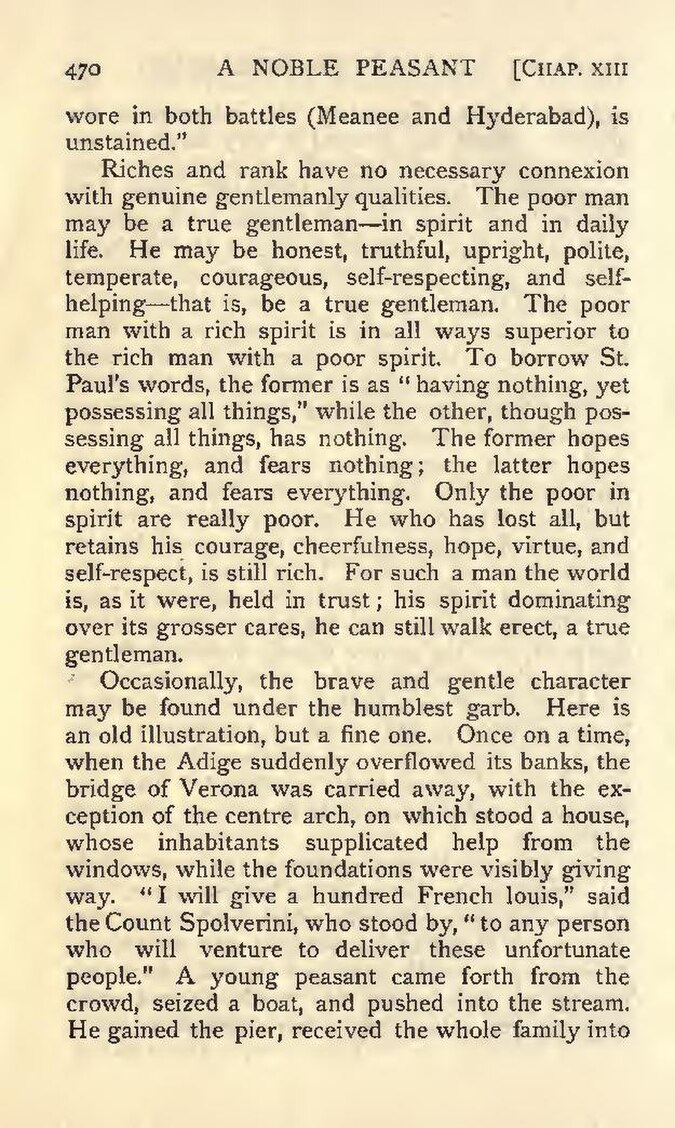wore in both battles (Meanee and Hyderabad), is unstained."
Riches and rank have no necessary connexion with genuine gentlemanly qualities. The poor man may be a true gentleman—in spirit and in daily life. He may be honest, truthful, upright, polite, temperate, courageous, self-respecting, and self-helping—that is, be a true gentleman. The poor man with a rich spirit is in all ways superior to the rich man with a poor spirit. To borrow St. Paul's words, the former is as "having nothing, yet possessing all things," while the other, though possessing all things, has nothing. The former hopes everything, and fears nothing; the latter hopes nothing, and fears everything. Only the poor in spirit are really poor. He who has lost all, but retains his courage, cheerfulness, hope, virtue, and self-respect, is still rich. For such a man the world is, as it were, held in trust; his spirit dominating over its grosser cares, he can still walk erect, a true gentleman.
Occasionally, the brave and gentle character may be found under the humblest garb. Here is an old illustration, but a fine one. Once on a time, when the Adige suddenly overflowed its banks, the bridge of Verona was carried away, with the exception of the center arch, on which stood a house, whose inhabitants supplicated help from the windows, while the foundations were visibly giving way. "I will give a hundred French louis," said the Count Spolverini, who stood by, "to any person who will venture to deliver these unfortunate people." A young peasant came forth from the crowd, seized a boat, and pushed into the stream. He gained the pier, received the whole family into
